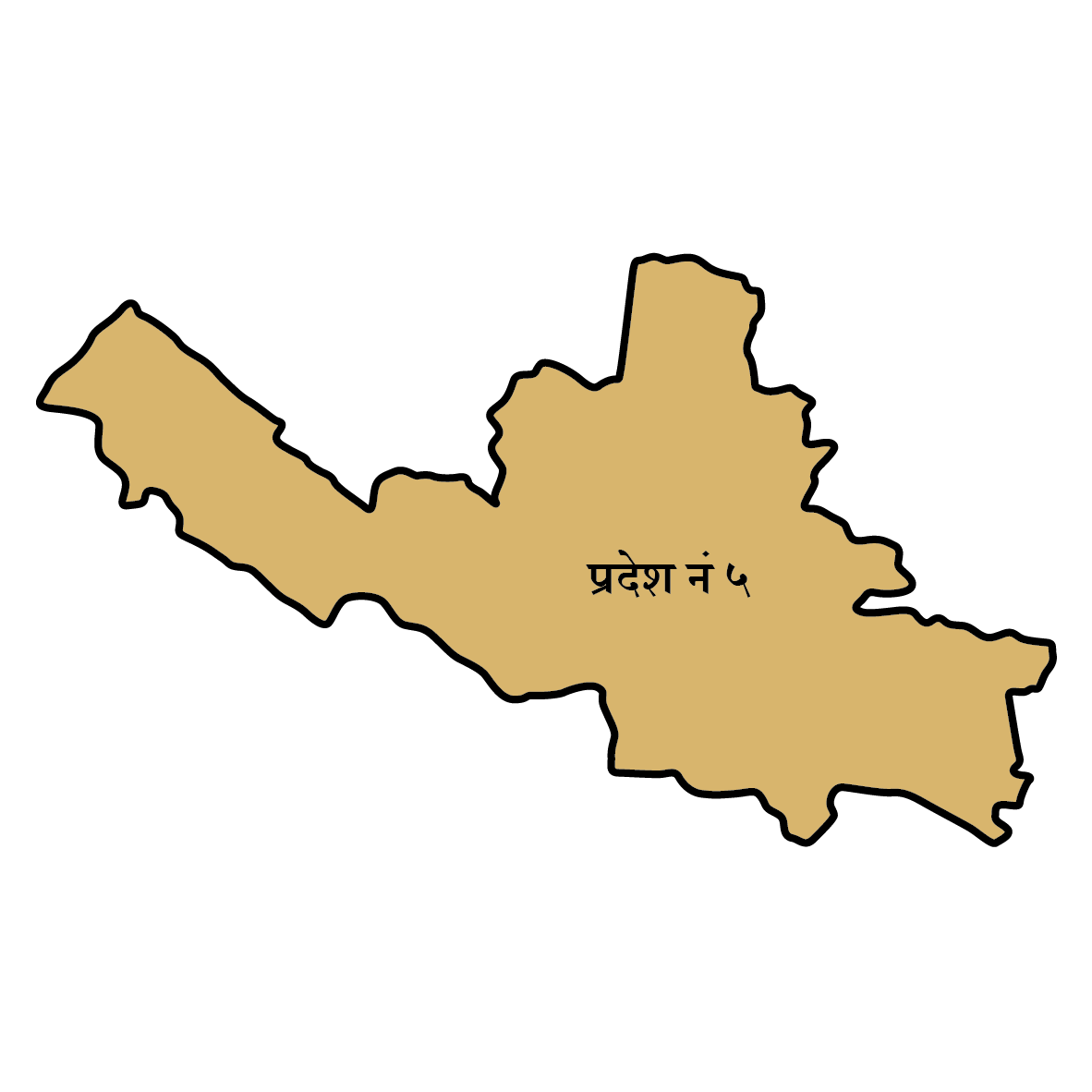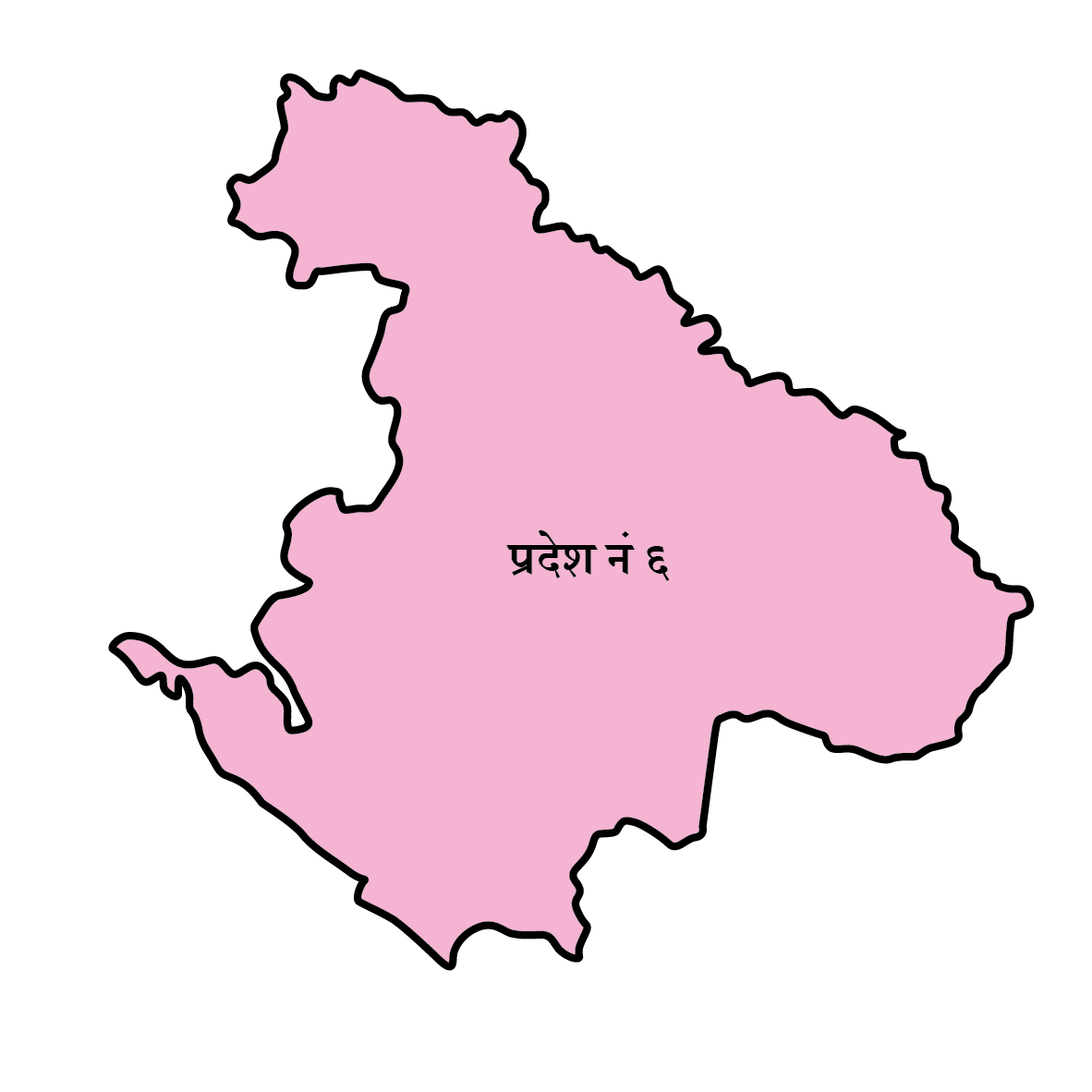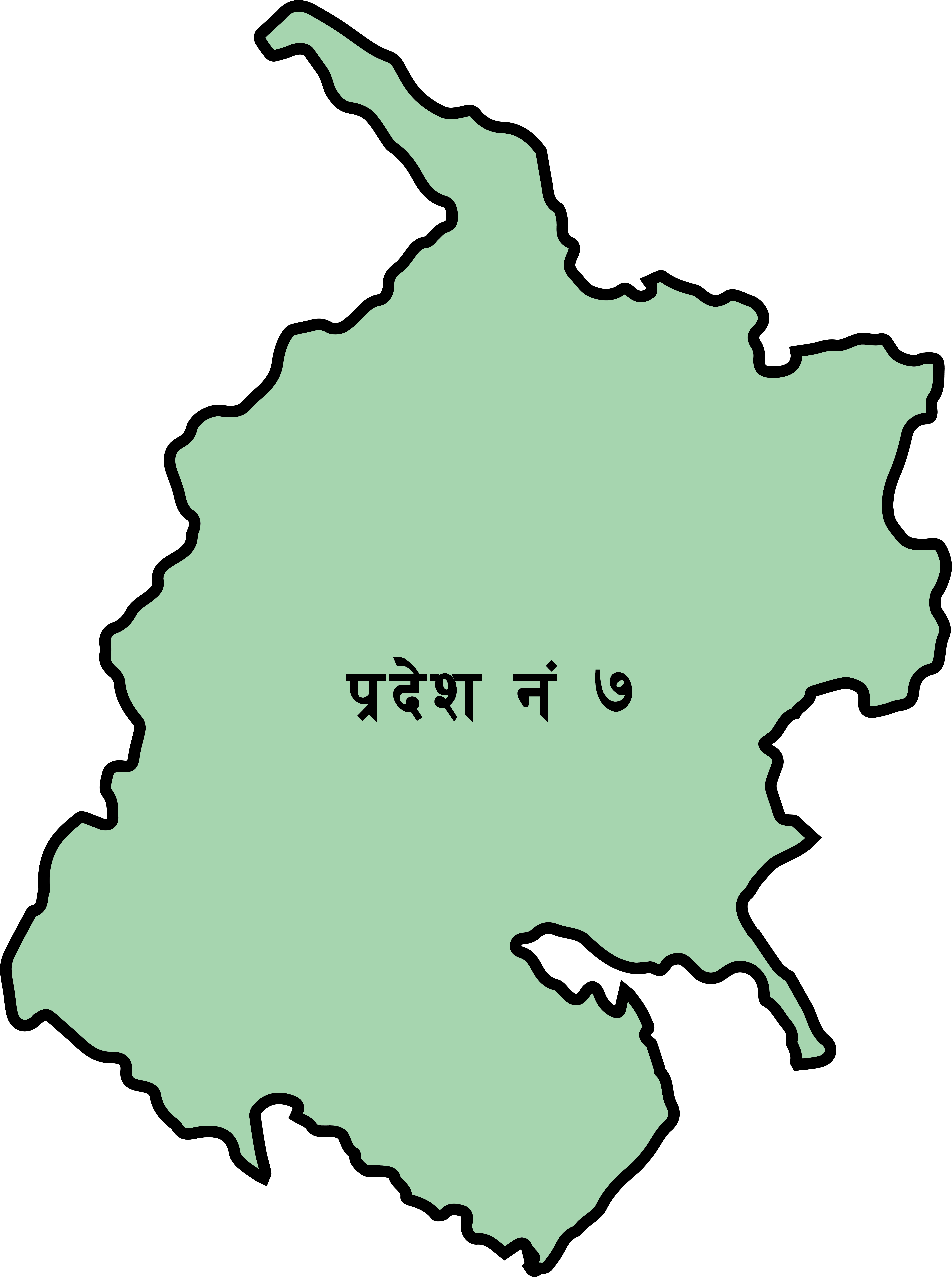Abstract:
The disruption of global trade and break in the supply chain, restriction on the movement of people seen after the origin of coronavirus disease (COVID-19) pandemic has generated a discussion about the future of the globalized world. This paper evaluates the global scenario where the relationship between states has entered a phase of de-globalization, and also shed light on the rerise of the realist school of thought in the arena of international relation. Though cooperation between states regarding medical supplies and the support of International Organizations (IOs) has been found for promoting equal access of vaccine to all countries despite their economic capacity; it’s being shadowed by vaccine inequality, populism, international scapegoating grappled with solutions to meet their soaring demands for medical supplies, banning the export of goods. Zooming in this global pandemic, this paper concludes that the de-globalization era has been started with an increased focus on nationalist policies, protectionism, vaccine inequality, heightened international competition rather than international cooperation and increased policy tension has darkened the future of globalization.
Keywords: COVID-19 Pandemic, Transformation, De-globalization, Realism
Introduction
The interdependence of the world’s economies, cultures and population has brought increasing cross-border trade in goods, services, technology, investments, people and information and made globalization full-fledged. However, COVID-19 has proven to be one of the greatest global challenges of this generation. The interconnected world, continuous flow of goods, services and money and connectivity has become helpless creating disruption of global trade and movement of people and goods (Rajesh Basrur, 2020). The overwhelming forces of globalization are being injured with unprecedented results created by this pandemic. The COVID-19 pandemic has become the worst crisis ever as it has invited both health and economic crisis. Countless people are getting infected around the world and the healthcare systems of different countries have come under severe strain and have also been bogged down by the shortage of essentials medical equipment like Personal Protective Equipment (PPEs) and ventilators. Not only the health care system, but economies around the world are also quaking under the shock due to sharply restricted economic activities, growing recession and increasing uncertainties and is triggering hidden disturbances in both demand and supply(Rajesh Basrur, 2020). The impact of the crisis has been strappingly felt by the international trade and global supply chains, increasing indication to the slowing of the globalization process and emergence of a new de-globalized era.
The rise of protectionism
When any crises like the COVID-19 pandemic hit, it is not IOs, not even the World Health Organisation (WHO) or NGOs, that citizens turn to first. The respective regimes are responsible to take the necessary actions to protect their citizens from the threat and to provide support for relief efforts. In the anarchical situation where there is an absence of an authority governing globally, the state is proving once again that it is the main actor in international politics. National self-help, travel and entry bans, international scapegoating grappled with solutions to meet their own soaring demands for medical supplies, and pharmaceutical protectionism are omnipresent. Many countries rushed to fend for themselves instead of joining for multilateral efforts. State leaders of all countries closed borders, restricted incoming travelers and become prepared to fix their damaged economy by themselves. States have reasserted their roles in responding the crisis and are pushed to make choices that are aligned to their national interests, making self-surviving calculations in different spheres, policies for self-recovery in the pandemic and post-pandemic era.
The wave of populist leaders being elected across the globe, raising the banner of nationalism and championing the nationalist policies and adopting anti-immigrant policies to attack immigration within their own countries has increased in past years. Attack to the existing global economy with trade interventions like tariffs and subsidies introduced by countries is increasing yearly and free trade has been made out of fashion and protectionism has been enforced(Nistha Shrestha, 2020). The ‘America First’ slogan of Donald Trump during his presidentship in the United States (US) and the stress of the Modi government on ‘Made in India’ can be taken as a good example (Huang, 2021). The zenith of these nationalist policies came during this pandemic when the countries closed their borders; instead of cooperating and coordinating their efforts in finding a solution, the countries stepped their path alone rather than benefitting from the experience of other countries.
The global trade depression
The United Nations Conference on Trade and Development (UNCTAD) suggested that world trade would plunge. As mentioned in its report that global trade has registered a three percent drop in the first quarter of 2020 and this downturn is expected to accelerate, leading to a whopping twenty-seven percent decline in trade. This depression in global trade has been gone together with a marked decline in commodity prices such as minerals, oil, metals and raw material(UNCTAD, 2021). Similarly, in this critical situation, different countries have banned the export of certain essentials. Banning the export of rice by Vietnam, banning the export of masks by the US and India’s policy to ban the generic anti-malaria drug hydroxychloroquine can be taken as a good example(Legrain, 2020).
Moreover, the disruption in the supply chain globally had frozen industrial manufacturing around the world. Industry leaders have been forced to rethink their supply chain and logistic strategies as the COVID-19 pandemic has exposed the vulnerabilities of complex supply chains constructed on slender manufacturing and single-sourcing model. One likely consequence of this crisis is that global firms will diversify their supply chain in the future, and there may be a shorter supply chain and new levels of resilience built in it. Not only the companies but also authorities around the world have been awakened to the dangers of offshoring essential commodities and not producing them locally. States and international companies are designing recovery policies to help build resilient and more comprehensive and sustainable economies. The US has requested its firms for shifting their main office from China to back home. Indian Prime Minister Narendra Modi talked of self-reliance and developing a market for local goods. It clearly shows that the post-COVID world will be the more regionalized one giving more focus on being less global and more local(Economist, 2020). And as a result of regionalization, nationalization and localization some form of deglobalization is invited.
The self-centrism
We have observed that how the member states of supranational organization, the European Union (EU), readily violate all critical EU regulations which are otherwise the sacrosanct principles like the four freedoms of movement in goods, capital, services and people, competition law, fiscal discipline. When EU members were asked for emergency relief by Italy, with critical medical supplies, for weeks it was met with exactly what realism expects that is the self-help strategy by the nation. the EU’s single-market spirit was also violated through an export ban on pharmaceutical equipment(Michael Dunford, 2020).
Similarly, Germany also closed its borders with its southern and western neighbors. The closest to a perfect international rules-based order, European nations violated the persistent rules at will once a crisis hit, though they had upheld the spirit during the refugee crisis in 2015(Greenfield, 2020). And it’s a wonder that how quickly lofty European ideals and norms make space for national self-help. This has been demonstrated by the EU member states because it is the national self-interest that is the only truly sacrosanct currency of international relations. Although those measures are temporary in nature, the damage is done and may permanently change the nature and the spirit of Europe(Laurent, 2020).
Similarly, we also witnessed the US President trying to acquire a German company close to developing a COVID-19 vaccine. Europe’s closest ally and partner attempted to exploit the German research success by giving his own people exclusive access to German pharmaceutical discoveries possibly the unsharpened display of national self-interest.
In contrast to the abovementioned argument, DHL’s 2020 Global Connectedness Index (GCI) whichtracks the depth and breadth of international trade, capital, information, and flow of people shows that digital globalization has been raced ahead. As people flow plummeted, the cross-border internet traffic has been increased which is suspected to fuel a boost in e-commerce activities. The report has also found that trade activity has recovered more quickly than predicted since the spring, reaching only about three percent lower than its pre-covid levels(Steven A. Altman, 2020).
Vaccine inequality and international competition
The inability to accommodate the diverse groups of emerging powers, the tension between the defenders and challengers have been fully exposed under the external shock of the COVID-19 pandemic which has turned out the international cooperation into an international competition. The problem has been started with the vaccine market itself. Rich countries made a lot of bilateral deals with vaccine companies brushing away the principle of multilateralism to emphasize international cooperation and management of international affairs through multilateral institutions.
Instead of the global collaboration process of vaccine allocation, rich countries are determining who gets which vaccine and by when. Making a high-risk investment, rich countries made the biggest order, invested more in research and development, purchased first and stood in the front of the line of receiving vaccines. Through such action, countries like Canada, United States secured vaccine doses more than enough to cover their population. And are getting more vaccines in compared to the sum of all of the poor nations, pushing the health systems of poor countries to limit through vaccine inequality.
Although, for the global risk-sharing mechanism for pooled procurement, the three global health groups, The Coalition for Epidemic Preparedness Innovations (CEPI), Gavi, the Vaccine Alliance, and WHO has taken the COVAX initiative for equitable global access to COVID-19 vaccines, alongside key delivery partner UNICEF, with the main objective to provide equal access to the vaccine to all participating countries regardless of income levels after the development of vaccines(Gavi , 2021).
United Nations Conference on Trade and Development (UNCTAD) has warned that the growing gap between the number of COVID-19 shots given in developed and developing countries will likely deepen existing socioeconomic inequalities. According to UNCTAD, vaccine doses administered per 100 people varies greatly across states. Africa is far behind, with only 0.6% of the continent’s population vaccinated, compared with 2.1% in Asia, 12.7% in Europe, 6.7% in South America and 18.8% in North America as of 31 March 2021(UNCTAD, 2021).
Though damage to globalization has been started earlier with the financial crash and the Sino-American trade war, backlash to globalization is spinning from its third blow in a dozen years as lockdowns have sealed borders and disrupted commerce. As economies reopen, activity will recover, but it is hard to expect a quick return to a carefree world of unrestricted movement and free trade. This may result in the development of regional trade networks instead of long supply chains.
The rerise of realism
The fundamental premise of realism that states can only rely on their resources and self-help is the guiding principle for states in the international system has been revitalized by the COVID-19 pandemic which displays that realism in international relations though discarded in the 1990s and early 2000s is not only alive but is back. “States being the primary actors driven by their interests seek to maximize security in an uncertain world” has been proved with the health capacity maximization by the states within their territory and banning the export of goods. The pandemic has reaffirmed the assumption that only strong states can cope with crises. States are seeking to assert their authority and legitimacy both within their territorial boundaries and the COVID-19 pandemic has provided fertile ground to nationalism for becoming a tool for positioning modern states in the international arena, as state reclaim their places in this crisis.
Furthermore, why realist focuses on the constraining efforts of anarchy, why great powers compete for advantage and why there are the obstacles to effective cooperation between states has been cleared with this crisis. It is worth remembering that a central event in Thucydides’ account of the Peloponnesian War is the plague that had struck Athens in 430 BC. Similarly, realism has something to say about the situation we find ourselves in the present situation formed by the COVID-19 pandemic. Firstly, the present emergency reminds us that states are the main actors in global politics because when a crisis occurs national government is called at first. Secondly, it suggests that despite the obvious need for cooperation, effective international cooperation is hard to achieve in a time of crisis since states fears that others will be more benefitted by the cooperation or others will not abide by their commitments(Economist, Globalization Unwound, 2020).
Conclusion
COVID-19 pandemic has become one of the greatest global challenges of this generation by threatening both the health system and the economy. The wave of the interconnectedness of the world’s economies, cultures and population and cross-border trade in goods, services, technology, investments, people and information has been shifted towards international competition, statism, national capacity maximization, survival and self-help. COVID-19 pandemic has shown that international cooperation and coordination come easy in times of harmony but such cooperation is much harder to come by when needed. States are seeking to assert their authority and legitimacy both within their territorial boundaries and this pandemic has originated a fertile ground for nationalism for becoming a tool for positioning modern states in the international arena, as state reclaim their places in this crisis.
On one hand, the unstoppable forces of globalization have been challenged by the unprecedented results created by the crisis. Companies are looking for adjustments to supply chains to minimize future risks by expanding to multiple bases and sourcing more of their materials locally(Tellis, 2020). On the other, a rerise of realism has been palpable with an increased focus on nationalist policies, protectionism, vaccine inequality and heightened international competition and self-centrism. Though collaboration between IOs for promoting equal access to the vaccine has been addressed, its being twisted by inequality in vaccine distribution through vaccine nationalism. Zooming in this global pandemic has reminded us that states are the main actors in global politics and despite the obvious need for cooperation, effective international cooperation is hard to achieve in a time of crisis.
To recapitulate, the COVID-19 pandemic will be another turning point in the history of international relations. As it could reverse the tide of globalization and we would have to adjust to a new-de-globalized-normal which works in the context of on-again-off-again containment measures and severely restricted borders and trade with strengthening the state and reinforcing nationalism and protectionism (Laurent, 2020). However, though the capital flows decreased globally and the movement of people fled to a level last seen in 1990, the pandemic could end up inspiring a different sort of globalization with the increased cross-border internet traffic which could likely fuel a boost in e-commerce activities. At last, but not least, this situation is one of the times when history has sped up and activities that could take a decade to occur are happening within months.
References
Bank, T. W. (2020). World Development Report 2020:Trading for Development in the Age of Global Value Chains. World Bank Publication.
Dunford, M. (2017). . Area Development and Policy. Retrieved from The rise of China and its implications for economics and other developing countries: the significance of the Chinese social model: doi:10.1080/23792949.2017.1307691
Economist, T. (2020, October 10). Business. Retrieved from https://www.economist.com/business/2020/10/10/how-covid-19-put-wind-in-shipping-companies-sails
Economist, T. (2020, September). Globalization Unwound. Retrieved from https://www.economist.com/leaders/2020/05/14/has-covid-19-killed-globalisation?utm_source=YouTube&utm_medium=Economist_Films&utm_campaign=Link_Description&utm_term=Business_and_Finance&utm_content=Correspondent&linkId=100000015691670
Economist, T. (2020, September). Will covid kill globalisation? Retrieved from https://www.youtube.com/watch?v=KJhlo6DtJIk
Galston, W. A. (2018, April). Journa lof Democracy. Retrieved from The Populist Challenge to Liberal Democracy: https://www.journalofdemocracy.org/articles/the-populist-challenge-to-liberal-democracy/
Gavi . (2021, May). Retrieved from The Vaccine Alliance: https://www.gavi.org/covax-facility
Greenfield, L. (2020, July). Nations and Nationalism. Retrieved from COVID-19, nationalism, and the politics of crisis: A scholarly exchange: https://doi.org/10.1111/nana.12644
Huang, Q. (2021). The Pandemic and the Transformation of Liberal iNternational Order. Retrieved from https://link.springer.com/article/10.1007/s11366-020-09698-0
Just when Italy really needed some unity, the EU failed it – and continues to do so. (2020). Retrieved from The Guardian: https://www.theguardian.com/world/2020/apr/19/european-union-italy-unity-failure-debt-germany-netherlands
Laurent, L. (2020, April). Tisn’t about moneyhe EU’s big pandemic failure. Retrieved from Bloomberg.
Legrain, P. (2020, March). Foreign Policy. Retrieved from The Coronavirus is killing globalization as we know it: https://foreignpolicy.com/2020/03/12/coronavirus-killing-globalization-nationalism-protectionism-trump/
Michael Dunford, B. Q. (2020). Global reset: COVID-19, systemic rivalry and the global order. Retrieved from https://doi.org/10.1016/j.resglo.2020.100021
Nistha Shrestha, M. Y.-M.-S. (2020). The impact of COVID-19 on globalization. One Health.
Rajesh Basrur, F. K. (2020). Covid 19 and international cooperation: IR paradigms. Springer Nature Social Sciences, 3.
Roberts, K. M. (2019). Crisis of representation and populist challenges to Liberal Democracy. Chinese Political Science Review:4.
Steven A. Altman, P. B. (2020). The State of Globalization in a Distancing World. In DHL Global Connectedness Index 2020 (p. 38). NYU Stern School of Business.
Tellis, A. J. (2020). Covid 19 knocks on American hegemony. Retrieved from https://www.nbr.org/publication/covid-19-knocks-on-american-hegemony/
UNCTAD. (2021, May). New portal tracks COVID-19’s impact on trade and development. Retrieved from United Nations Conference on Trade and Development: https://unctad.org/news/new-portal-tracks-covid-19s-impact-trade-and-development

 कोशी प्रदेश
कोशी प्रदेश मधेश प्रदेश
मधेश प्रदेश बागमती
बागमती गण्डकी
गण्डकी लुम्बिनी
लुम्बिनी कर्णाली
कर्णाली  सुदूरपश्चिम
सुदूरपश्चिम
















